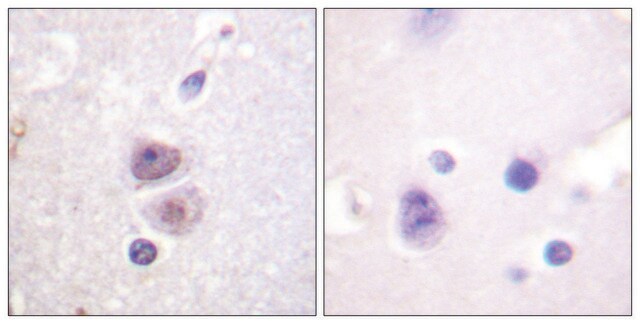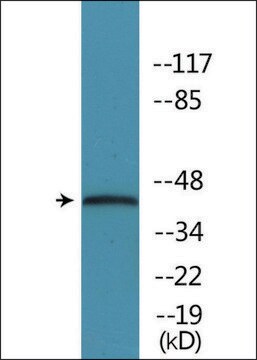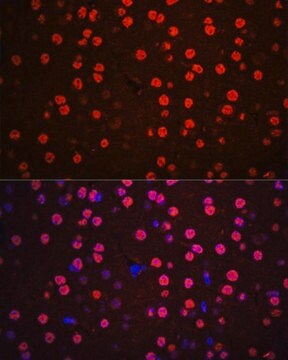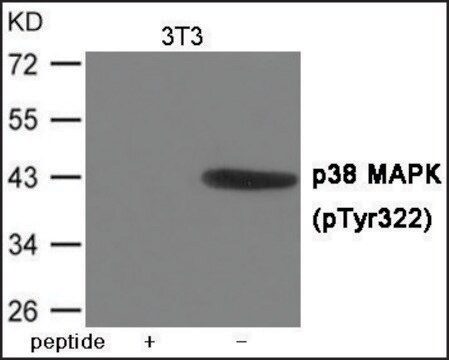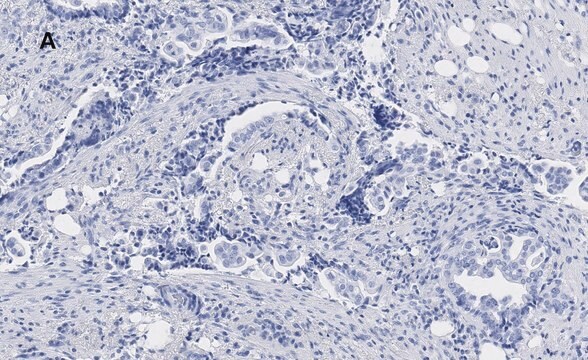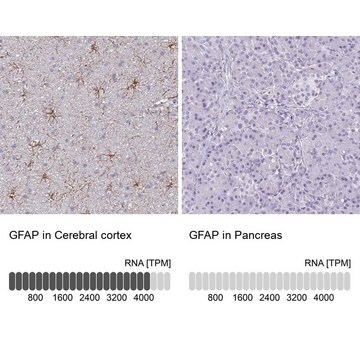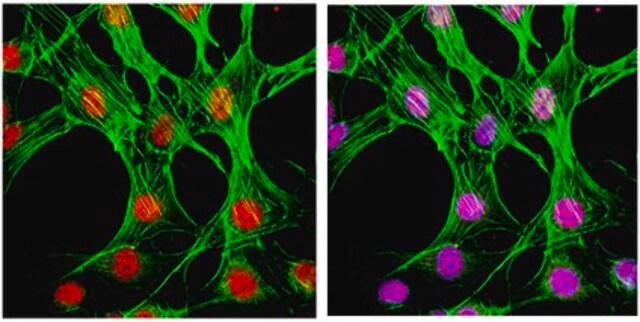ZRB2006
Anti-phospho-p38 (T180/Y182) Antibody, clone 2B7 ZooMAb® Rabbit Monoclonal

recombinant, expressed in HEK 293 cells
Synonym(e):
EC:2.7.11.24, MAP kinase 13, MAP kinase p38 delta, MAPK 13, Mitogen-activated protein kinase 13, Mitogen-activated protein kinase p38 delta, Stress-activated protein kinase 4
About This Item
Empfohlene Produkte
Biologische Quelle
rabbit
Qualitätsniveau
Rekombinant
expressed in HEK 293 cells
Konjugat
unconjugated
Antikörperform
purified antibody
Antikörper-Produkttyp
primary antibodies
Klon
2B7, recombinant monoclonal
Beschreibung
recombinant, expressed in HEK 293 cells
Produktlinie
ZooMAb® learn more
Form
lyophilized
Aufgereinigt durch
using Protein A
Speziesreaktivität
human
Verpackung
antibody small pack of 25 μL
Grünere Alternativprodukt-Eigenschaften
Waste Prevention
Designing Safer Chemicals
Design for Energy Efficiency
Learn more about the Principles of Green Chemistry.
Erweiterte Validierung
recombinant expression
Learn more about Antibody Enhanced Validation
sustainability
Greener Alternative Product
Methode(n)
flow cytometry: suitable
immunohistochemistry: suitable
inhibition assay: suitable
western blot: suitable
Isotyp
IgG
Epitopsequenz
Internal
Protein-ID-Hinterlegungsnummer
UniProt-Hinterlegungsnummer
Grünere Alternativprodukt-Kategorie
Versandbedingung
ambient
Lagertemp.
2-8°C
Allgemeine Beschreibung
Spezifität
Immunogen
Anwendung
Evaluated by Western Blotting in lysate from HEK293 cells treated with Anisomycin.
Western Blotting Analysis: A 1:1,000 dilution of this antibody detected phospho-p38 MAPK (Thr180/Tyr182) in lysate from overnight serum starved HEK293 cells treated with Anisomycin (5 g/mL; 30 min.)
Tested Applications
Peptide Inhibition Assay:: Target band detection in lysate from HEK293 cells treated with Anisomycin was prevented by pre-blocking of a representative lot with the immunogen phosphopeptide, but not the corresponding non-phosphopeptide.
Flow Cytometry Analysis: 0.1 µg from a representative lot detected phospho-p38 MAPK (Thr180/Tyr182) in one million HEK293 cells treated with Anisomycin.
Immunohistochemistry (Paraffin) Analysis: A 1:100 dilution from a representative lot detected phospho-p38 MAPK (Thr180/Tyr182) in Human colon cancer tissue sections.
Note: Actual optimal working dilutions must be determined by end user as specimens, and experimental conditions may vary with the end user.
Zielbeschreibung
Physikalische Form
Lagerung und Haltbarkeit
Sonstige Hinweise
Rechtliche Hinweise
Haftungsausschluss
Sie haben nicht das passende Produkt gefunden?
Probieren Sie unser Produkt-Auswahlhilfe. aus.
Lagerklassenschlüssel
11 - Combustible Solids
WGK
WGK 1
Flammpunkt (°F)
Not applicable
Flammpunkt (°C)
Not applicable
Hier finden Sie alle aktuellen Versionen:
Analysenzertifikate (COA)
It looks like we've run into a problem, but you can still download Certificates of Analysis from our Dokumente section.
Wenn Sie Hilfe benötigen, wenden Sie sich bitte an Kundensupport
Besitzen Sie dieses Produkt bereits?
In der Dokumentenbibliothek finden Sie die Dokumentation zu den Produkten, die Sie kürzlich erworben haben.
Unser Team von Wissenschaftlern verfügt über Erfahrung in allen Forschungsbereichen einschließlich Life Science, Materialwissenschaften, chemischer Synthese, Chromatographie, Analytik und vielen mehr..
Setzen Sie sich mit dem technischen Dienst in Verbindung.